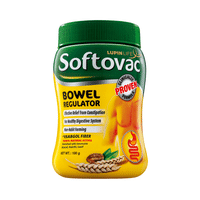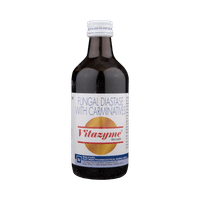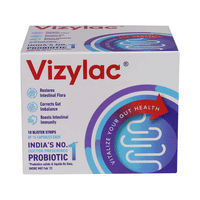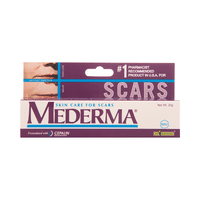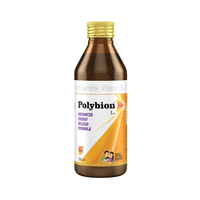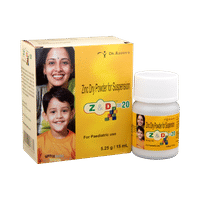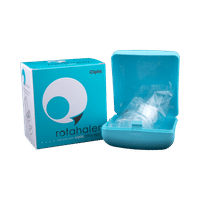Rs.28.60for 1 bottle(s) (5 ml Eye Drop each)
food interaction for Scat DM
alcohol interaction for Scat DM
pregnancy interaction for Scat DM
lactation interaction for Scat DM
food
alcohol
pregnancy
lactation
No interaction found/established
No interaction found/established
Scat DM Eye Drop may be unsafe to use during pregnancy. Although there are limited studies in humans, animal studies have shown harmful effects on the developing baby. Your doctor will weigh the benefits and any potential risks before prescribing it to you. Please consult your doctor.
CONSULT YOUR DOCTOR
Scat DM Eye Drop is probably unsafe to use during breastfeeding. Limited human data suggests that the drug may pass into the breastmilk and harm the baby.
Scat DM Eye Drop may cause diarrhea or rash in the baby.
Scat DM Eye Drop may cause diarrhea or rash in the baby.
CONSULT YOUR DOCTOR
SALT INFORMATION FOR Scat DM
Sparfloxacin(0.3% w/v)
Uses
Sparfloxacin is used in the treatment of bacterial infections. It is also used in infections of urinary tract, tonsils, sinus, nose, throat, female genital organ, skin & soft tissues and lungs (pneumonia).
How it works
Sparfloxacin is an antibiotic. It works by stopping the action of a bacterial enzyme called DNA-gyrase. This prevents the bacterial cells from dividing and repairing, thereby killing them.
Common side effects
Diarrhea, Nausea, Vomiting, Headache, Dizziness, Rash, Allergic reaction, Dryness in mouth, Abdominal pain, Flatulence, Itching, Insomnia (difficulty in sleeping), Photosensitivity, Dyspepsia, Taste change, Prolonged QTc interval, Vasodilation, Vaginal moniliasis, Weakness, Sleepiness, Chest pain, Generalized pain, Chills, Facial swelling, Palpitations, Cardiovascular disorders, Abnormal ECG, Postural hypotension (low blood pressure), Constipation, Gum swelling, Fungal infection of mouth, Stomatitis (Inflammation of the mouth), Swelling of lymph nodes, Gout, Peripheral edema, Joint disorders, Paresthesia (tingling or pricking sensation), Muscle twitching, Asthma, Maculopapular rash, Photophobia, Urinary tract infection, Dermatitis, Ear disorder, Loss of accommodation, Vaginal inflammation, Discomfort when urinating, Breast pain, Pain during periods
Dexamethasone(0.1% w/v)
Uses
Dexamethasone is used for Inflammatory conditions and Autoimmune conditions.
How it works
Dexamethasone is a steroid which works by blocking the production of certain chemical messengers in the body that cause inflammation (redness and swelling) and allergies.
Common side effects
Increased appetite, Edema (swelling), Increased intraocular pressure, Decreased potassium level in blood, Tendon rupture, Weight gain, High blood pressure, Increased glucose level in blood, Menstrual disorder, Glaucoma, Slow heart rate, Tachycardia, Arrhythmia (irregular heartbeats), Enlarged heart, Circulatory shock, Fat embolism, Fainting, Thromboembolism, Thrombophlebitis, Vasculitis, Glucose intolerance, Cushing syndrome, Fat accumulation, Conjunctival hemorrhage, Vitreous detachment, Conjunctival hyperemia, Posterior subcapsular cataract, Acne, Allergic dermatitis, Hair loss, Stretch marks, Facial redness, Fragile skin, Skin hyperpigmentation, Hypertrichosis (excessive hair growth), Hypopigmentation, Fluid retention, Growth retardation in children, Excessive hair growth on face, Hypokalemic alkalosis, Negative nitrogen balance, Hiccup, Nausea, Vomiting, Abdominal pain, Pancreatic inflammation, Anal itching, Defective spermatogenesis, Kaposi sarcoma, Hepatomegaly (enlarged liver), Anaphylactic reaction, Sterile abscess, Postinjection flare, Emotional lability, Headache, Idiopathic intracranial hypertension, Increased intracranial pressure, Myasthenia (weakness and rapid fatigue of muscle), Neuropathy, Personality changes, Seizure, Vertigo, Amyotrophy, Bulging eyes, Pulmonary edema, Impaired wound healing, Aseptic necrosis, Muscle weakness, Osteoporosis, Pathologic fracture of long bones, Steroid myopathy, Vertebral compression fractures, Increased liver enzymes
SUBSTITUTES FOR Scat DM
No substitutes foundExpert advice FOR Scat DM
- Your doctor has prescribed Sparfloxacin to cure your infection and improve symptoms.
- Do not skip any doses and finish the full course of treatment even if you feel better.
- Discontinue Sparfloxacin and inform your doctor immediately if you get a rash, itchy skin, swelling of face and mouth, or have difficulty in breathing.
- Diarrhea may occur as a side effect but should stop when your course is complete. Inform your doctor if it doesn't stop or if you find blood in your stools.
- Notify your doctor if you feel pain in your tendons, numbness, or tingling sensations.
- Inform your doctor if you are pregnant or planning to conceive or breastfeeding.
Frequently asked questions FOR Scat DM
Sparfloxacin
Q. Can the use of Sparfloxacin cause diarrhea?
Yes, the use of Sparfloxacin can cause diarrhea. It is an antibiotic which kills the harmful bacteria. However, it also affects the helpful bacteria in your stomach or intestine and causes diarrhea. If you are experiencing severe diarrhea, talk to your doctor about it.
Q. Can I stop taking Sparfloxacin when I feel better?
No, do not stop taking Sparfloxacin and complete the full course of treatment even if you feel better. Your symptoms may improve before the infection is completely cured.
Q. Can the use of Sparfloxacin increase the risk of muscle damage?
Yes, use of Sparfloxacin is known to increase the risk of muscle damage, commonly in the ankle (achilies tendon). Muscle damage can happen in people of all ages who take Sparfloxacin. Inform your doctor if you feel any kind of muscle pain while using this medicine.
Dexamethasone
Q. Is Dexamethasone a steroid?
Yes, Dexamethasone is a steroid medicine also known as glucocorticoids which occur naturally in the body and help to maintain health and wellbeing. Dexamethasone helps in treating various illnesses involving inflammation (redness, tenderness, heat and swelling) in the body.
Q. What is Dexamethasone used for?
Dexamethasone has anti-inflammatory and immunosuppressant properties. It is used to treat conditions like allergic conditions, anaphylaxis, asthma, rheumatoid arthritis and inflammatory skin diseases. It also aids in treating autoimmune diseases (these diseases happen when your body’s immune system attacks the body itself and causes damage) and certain eye disorders. Additionally, it is used to treat cancer and nephrotic syndrome when used with other medicines.
Q. How is Dexamethasone administered?
Dexamethasone should be administered by a doctor or under the supervision of a healthcare professional and should not be self-administered. Usually, it is given into a muscle (intramuscular), joint (intra-articular), directly into a vein (direct intravenous), infusion or into the area being treated (soft tissue infiltration). The dose will be decided by your doctor based on the condition you are being treated for as well as your body weight. Follow your doctor’s instructions carefully to get the maximum benefit from Dexamethasone.














